People
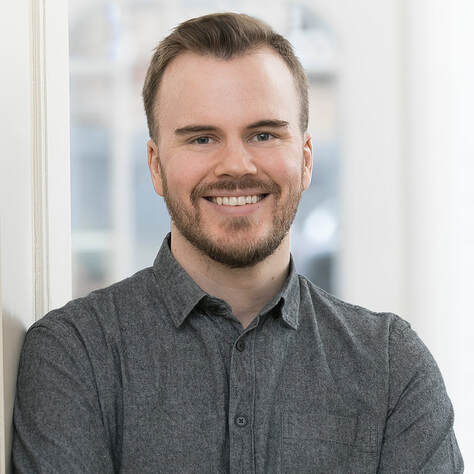
Brett Hilton
Principal Investigator
Dr. Brett J. Hilton is an Assistant Professor in the Cellular & Physiological Sciences department at The University of British Columbia (UBC) in Vancouver, BC, Canada. He is also a Principal Investigator at the International Collaboration on Repair Discoveries (ICORD) and a Full member of the Djavad Mowafaghian Centre for Brain Health (DMCBH). Dr. Hilton completed a BSc in Biology and a BA in English Literature at UBC. He then completed his PhD under the supervision of Dr. Wolfram Tetzlaff, where he discovered his passion for spinal cord injury research and investigated the regeneration and plasticity of descending motor pathways following spinal cord injury. In collaboration with Dr. Cédric Geoffroy and Dr. Binhai Zheng at UCSD, he discovered that aging significantly diminishes central axon regeneration, and in collaboration with Dr. Tim Murphy at UBC, he discovered that a minor corticospinal pathway could mediate functional improvements following spinal cord injury.
Following his PhD, Dr. Hilton moved to Bonn Germany to conduct his postdoctoral studies with expert cellular and molecular neuroscientist and hugger Dr. Frank Bradke at the German Center for Neurodegenerative Diseases (DZNE). There, he investigated the cellular and molecular mechanisms that restrict axon regeneration. He developed a tissue clearing and 3D imaging analysis pipeline to rapidly and accurately assess cell or cellular process density in unsectioned tissue, discovered that critical components of the synapse suppress regeneration, and found that RhoA has divergent physiological roles in neurons and reactive astrocytes following injury.
Outside of the lab, Dr. Hilton enjoys running, listening to podcasts, reading Murakami short stories and Emerson essays, agonizing over the Toronto Maple Leafs, and going to pop punk rock shows.
Principal Investigator
Dr. Brett J. Hilton is an Assistant Professor in the Cellular & Physiological Sciences department at The University of British Columbia (UBC) in Vancouver, BC, Canada. He is also a Principal Investigator at the International Collaboration on Repair Discoveries (ICORD) and a Full member of the Djavad Mowafaghian Centre for Brain Health (DMCBH). Dr. Hilton completed a BSc in Biology and a BA in English Literature at UBC. He then completed his PhD under the supervision of Dr. Wolfram Tetzlaff, where he discovered his passion for spinal cord injury research and investigated the regeneration and plasticity of descending motor pathways following spinal cord injury. In collaboration with Dr. Cédric Geoffroy and Dr. Binhai Zheng at UCSD, he discovered that aging significantly diminishes central axon regeneration, and in collaboration with Dr. Tim Murphy at UBC, he discovered that a minor corticospinal pathway could mediate functional improvements following spinal cord injury.
Following his PhD, Dr. Hilton moved to Bonn Germany to conduct his postdoctoral studies with expert cellular and molecular neuroscientist and hugger Dr. Frank Bradke at the German Center for Neurodegenerative Diseases (DZNE). There, he investigated the cellular and molecular mechanisms that restrict axon regeneration. He developed a tissue clearing and 3D imaging analysis pipeline to rapidly and accurately assess cell or cellular process density in unsectioned tissue, discovered that critical components of the synapse suppress regeneration, and found that RhoA has divergent physiological roles in neurons and reactive astrocytes following injury.
Outside of the lab, Dr. Hilton enjoys running, listening to podcasts, reading Murakami short stories and Emerson essays, agonizing over the Toronto Maple Leafs, and going to pop punk rock shows.
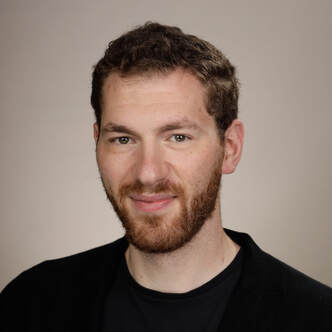
Timo Friedman
CIHR Postdoctoral Fellow
Dr. Timo Friedman started as a Postdoctoral Researcher in the Hilton Lab in August 2023. Timo completed his PhD in Neuroscience at the University of Alberta under the supervision of Dr. Bradley Kerr, investigating sex difference in a mouse model of Multiple Sclerosis (MS) and the divergence of inflammatory consequences on immunity and neuroplasticity. Timo has a keen interest in computational methods applied to neuroscience and enjoys developing high throughput automated pipelines for quantitative analyses, especially applied to microscopy. In addition to a deep love of appropriate control conditions, Timo finds great satisfaction in spending an hour learning how to automate a task that would take 45 minutes to do manually. In his free time he likes to dabble with game development, photography, and the timeless classics of literature and cinema.
CIHR Postdoctoral Fellow
Dr. Timo Friedman started as a Postdoctoral Researcher in the Hilton Lab in August 2023. Timo completed his PhD in Neuroscience at the University of Alberta under the supervision of Dr. Bradley Kerr, investigating sex difference in a mouse model of Multiple Sclerosis (MS) and the divergence of inflammatory consequences on immunity and neuroplasticity. Timo has a keen interest in computational methods applied to neuroscience and enjoys developing high throughput automated pipelines for quantitative analyses, especially applied to microscopy. In addition to a deep love of appropriate control conditions, Timo finds great satisfaction in spending an hour learning how to automate a task that would take 45 minutes to do manually. In his free time he likes to dabble with game development, photography, and the timeless classics of literature and cinema.

Hanna Tagomori
PhD Student (Neuroscience)
Hanna is a PhD student in the Graduate Program in Neuroscience. Prior to joining the lab, she completed a Bachelor of Biomedicine at the University of Melbourne, and a Master's in Medical Sciences (Immunology) at the University of Tsukuba. She then worked as a research technician in the Laboratory for Distributed Cognitive Processing, headed by Dr. Lukas Ian Schmitt at RIKEN Center for Brain Science, where she used systems neuroscience approaches to study brain circuits involved in sensory perception and inference, as well as rule-learning. Hanna's research at the Hilton lab focuses on investigating corticospinal neuron plasticity after spinal cord injury, which she hopes will translate into the development of targeted strategies to maximize axonal regeneration and functional repair. In her free time, Hanna enjoys painting/crafting, playing music, and exploring the city.
PhD Student (Neuroscience)
Hanna is a PhD student in the Graduate Program in Neuroscience. Prior to joining the lab, she completed a Bachelor of Biomedicine at the University of Melbourne, and a Master's in Medical Sciences (Immunology) at the University of Tsukuba. She then worked as a research technician in the Laboratory for Distributed Cognitive Processing, headed by Dr. Lukas Ian Schmitt at RIKEN Center for Brain Science, where she used systems neuroscience approaches to study brain circuits involved in sensory perception and inference, as well as rule-learning. Hanna's research at the Hilton lab focuses on investigating corticospinal neuron plasticity after spinal cord injury, which she hopes will translate into the development of targeted strategies to maximize axonal regeneration and functional repair. In her free time, Hanna enjoys painting/crafting, playing music, and exploring the city.

Danya Abazari
PhD Student (Cell & Developmental Biology starting September 2024)
Danya is a PhD student in the CELL Graduate Program. After completing her undergraduate degree, she joined Dr. Raad Nashmi's lab as a research assistant at the University of Victoria where she was involved in a study looking at differential modulations of dopaminergic neurons in the midbrain. She then moved to Vancouver and completed her master’s under Dr. Shernaz Bamji's supervision at UBC. Her work in Bamji lab was focused on the role of post-translational modifications on the regulation of synaptic plasticity in brain. Danya's project will focus on identifying the signalling pathways directing formation of scar-forming astrocytes following spinal cord injury. In her spare time, Danya enjoys music, books, food, and spending time with family.
PhD Student (Cell & Developmental Biology starting September 2024)
Danya is a PhD student in the CELL Graduate Program. After completing her undergraduate degree, she joined Dr. Raad Nashmi's lab as a research assistant at the University of Victoria where she was involved in a study looking at differential modulations of dopaminergic neurons in the midbrain. She then moved to Vancouver and completed her master’s under Dr. Shernaz Bamji's supervision at UBC. Her work in Bamji lab was focused on the role of post-translational modifications on the regulation of synaptic plasticity in brain. Danya's project will focus on identifying the signalling pathways directing formation of scar-forming astrocytes following spinal cord injury. In her spare time, Danya enjoys music, books, food, and spending time with family.
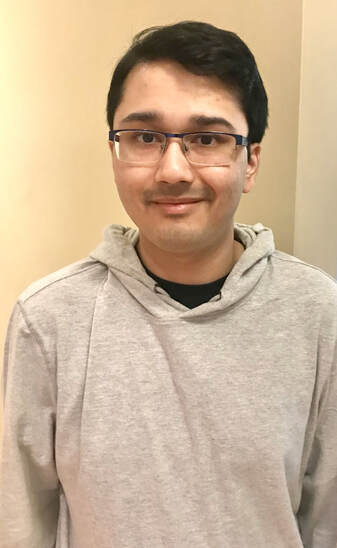
Isa Samad
CIHR CGS-M Master's Student (Neuroscience)
Isa is a Master’s student in the Neuroscience Graduate Program. He previously completed his undergraduate degree with Departmental Honors in Neurosciences at UCLA. Under the supervision of Drs. Carlos Portera-Cailliau and William Zeiger, his previous work focused on understanding how the mouse brain recovers after ischemic stroke at the neuronal level. Isa’s current research now focuses on investigating how neuronal maturation blocks axon regeneration following spinal cord injury. In his spare time, Isa enjoys following the NBA (Go Raptors!) and learning about different cultures through language.
CIHR CGS-M Master's Student (Neuroscience)
Isa is a Master’s student in the Neuroscience Graduate Program. He previously completed his undergraduate degree with Departmental Honors in Neurosciences at UCLA. Under the supervision of Drs. Carlos Portera-Cailliau and William Zeiger, his previous work focused on understanding how the mouse brain recovers after ischemic stroke at the neuronal level. Isa’s current research now focuses on investigating how neuronal maturation blocks axon regeneration following spinal cord injury. In his spare time, Isa enjoys following the NBA (Go Raptors!) and learning about different cultures through language.

Eliana Seburn
CIHR CGS-M Master's Student (Neuroscience starting September 2024)
Eliana completed her undergraduate degree with an Honours in Biology at the University of Prince Edward Island. Her previous research under Dr. Stevan Springer focused on experimentally verifying a statistical test of adaptation in whale myoglobin. In the Hilton Lab, Eliana’s research focuses on how primary sensory neurons acquire axon growth competence. In her free time, she enjoys weightlifting, being outdoors, and gymnastics.
CIHR CGS-M Master's Student (Neuroscience starting September 2024)
Eliana completed her undergraduate degree with an Honours in Biology at the University of Prince Edward Island. Her previous research under Dr. Stevan Springer focused on experimentally verifying a statistical test of adaptation in whale myoglobin. In the Hilton Lab, Eliana’s research focuses on how primary sensory neurons acquire axon growth competence. In her free time, she enjoys weightlifting, being outdoors, and gymnastics.
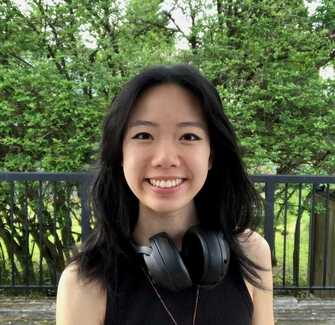
Naomi Huang
Technician
Naomi is a recent graduate of UBC, where she majored in Biology and joined the lab as a co-op student in the summer of 2023. Her work in the Hilton Lab is exploring the functional and histological effects of Baclofen treatment in a cervical spinal cord injury model.
Technician
Naomi is a recent graduate of UBC, where she majored in Biology and joined the lab as a co-op student in the summer of 2023. Her work in the Hilton Lab is exploring the functional and histological effects of Baclofen treatment in a cervical spinal cord injury model.
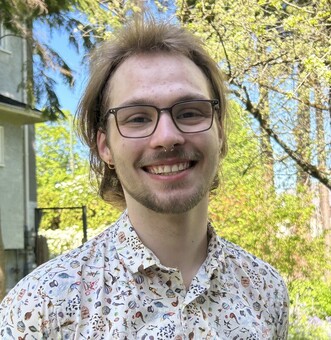
Samuel Duenwald
Technician
Sam is a recent graduate of the Cellular, Anatomical, and Physiological (CAPS) program. After completing a Co-op placement in the neighboring Tetzlaff lab focusing on myelin regeneration, he started a work-learn position in the Hilton Lab in the summer of 2023. Sam conducted his Honour's thesis project in the lab. Sam is applying single molecule fluorescence in situ hybridization methods to discern the effect that peripheral nerve injury has on transcription of chromatin-related genes in dorsal root ganglion neurons.
Technician
Sam is a recent graduate of the Cellular, Anatomical, and Physiological (CAPS) program. After completing a Co-op placement in the neighboring Tetzlaff lab focusing on myelin regeneration, he started a work-learn position in the Hilton Lab in the summer of 2023. Sam conducted his Honour's thesis project in the lab. Sam is applying single molecule fluorescence in situ hybridization methods to discern the effect that peripheral nerve injury has on transcription of chromatin-related genes in dorsal root ganglion neurons.
